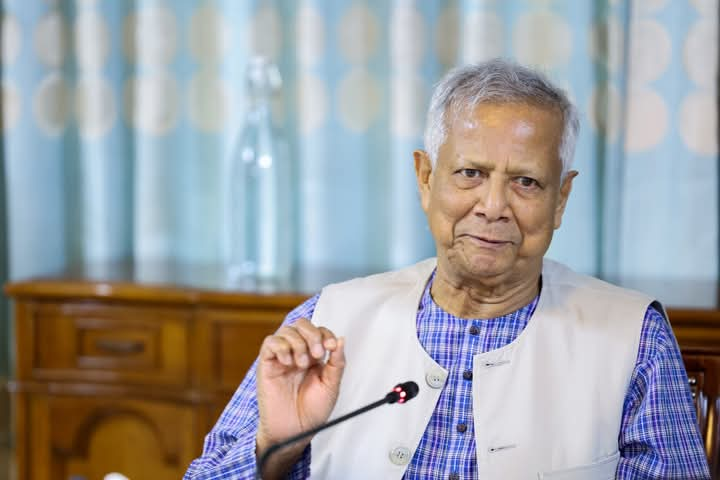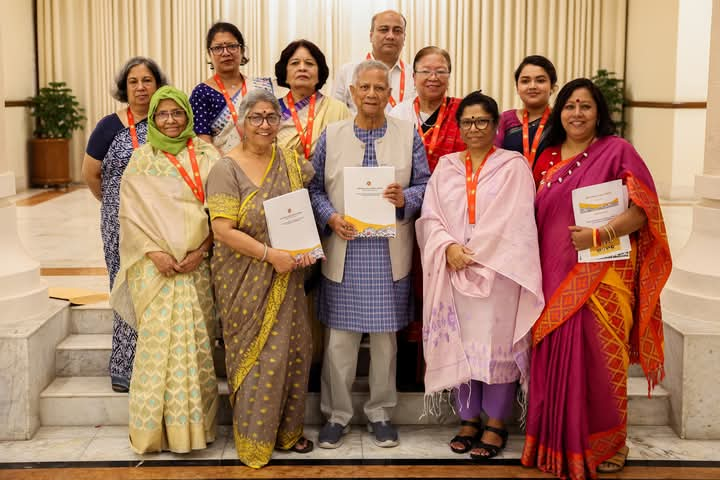The Women’s Affairs Reform Commission on Saturday proposed a significant overhaul of parliamentary representation, recommending an increase in the total number of seats in the Jatiya Sangsad to 600—half of which would be exclusively reserved for women through direct elections.
This proposal, aimed at ensuring greater gender parity in political representation, departs from the earlier recommendation of the Electoral System Reform Commission, which suggested expanding the number of seats to 400—300 general seats and 100 for women.
The Women’s Commission submitted its 318-page report to Chief Adviser Professor Muhammad Yunus at the state guesthouse Jamuna, citing population growth and the need for inclusive governance as key reasons behind the proposed expansion.
According to the proposal, each general constituency would elect two members—one open to all candidates and another reserved for women—mirroring the dual-seat model used in Upazila Parishad vice-chair elections.
Both reform commissions agree that women’s reserved seats should be filled through direct elections, replacing the current proportional election system used in Parliament.
The report spans reforms in three primary areas: the Constitution, legislative frameworks, and women’s rights.
Key recommendations include: Establishing “equality units” in all ministries, forming an independent women’s commission, restructuring the National Women and Children Development Council and strengthening the institutional capacity of national bodies to support women’s advancement.
The Commission also emphasised decentralisation and local development as essential to protecting women’s rights. It called for enhanced security for women and girls, greater female participation in public administration, and increased access to education, technology, healthcare, and employment.
To implement the recommendations, the report outlined a phased timeline—actions to be initiated under the interim government and further steps to be taken by the next elected administration.
Receiving the report, Chief Adviser Muhammad Yunus instructed the relevant ministries and departments to begin implementation without delay.

“We must act swiftly on the actionable recommendations so Bangladesh can set an example for the rest of the world,” said Yunus. “This is not just a women’s issue—it’s a national issue. This report should not gather dust in offices; it must be shared publicly.”
He also assured that the proposals would be discussed with political parties via the National Consensus Commission.
Commission Chair Shireen Parveen Haque said the recommendations honour the memory of those who died in the July uprising and reflect the long-standing aspirations of Bangladesh’s women’s movement.
She noted that the report is divided into three segments: measures for the interim government, those for the next elected administration, and a separate section encapsulating the demands of the women’s rights movement.
Other members of the commission present included Maheen Sultan (BRAC Institute of Governance and Development), Advocate Kamrun Nahar, Kalpona Akter (Bangladesh Garment and Industrial Workers Federation), Dr Halida Hanum Akhter (women’s health expert), Sumaiya Islam (Bangladesh Nari Sramik Kendra), Nirupa Dewan (former NHRC member), Ferdousi Sultana (former ADB adviser), and Nishita Zaman Niha, a student representative.
The 10-member Women’s Affairs Reform Commission was formed in November 2024 with a 90-day mandate to submit its recommendations.
- Updated with minor corrections in the headline


